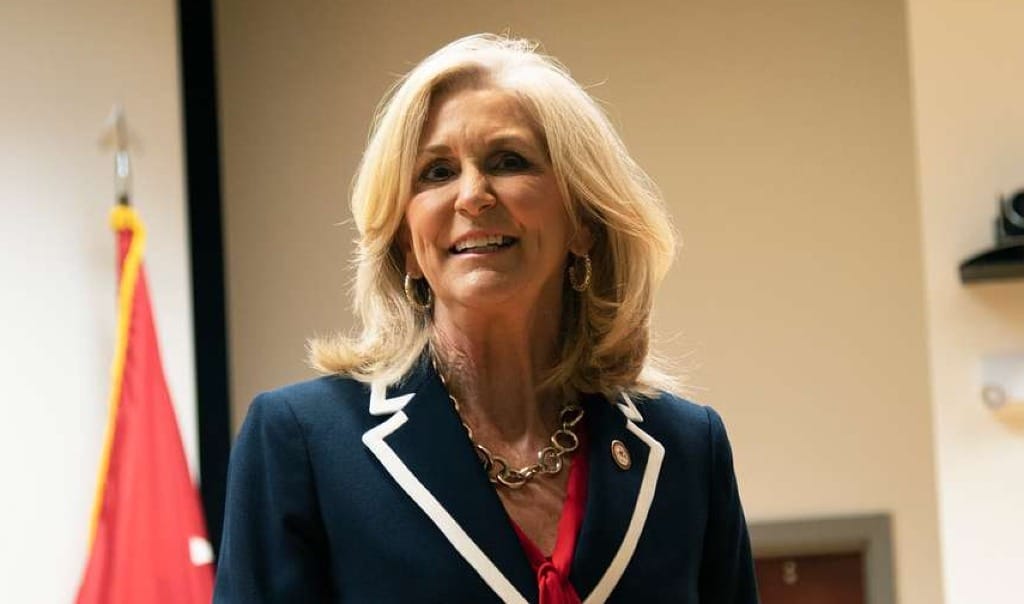FCC Chairwoman Gains Unlikely GOP Ally in Customer Service Inquiry
Mississippi’s GOP Attorney General supports applying customer service requirements to broadband, satellite, and voice providers.
Jericho Casper

WASHINGTON, Dec. 11, 2024 – Federal Communications Commission Chairwoman Jessica Rosenworcel, a Democrat, has found an unexpected ally in her effort to address customer service complaints in the telecom industry: Mississippi Attorney General Lynn Fitch, a prominent member of the GOP and outspoken supporter of President-elect Donald Trump.
Fitch was the only Republican among 15 state AGs to sign onto reply comments commending the FCC's October inquiry into improving customer service practices across broadband, cable, satellite TV, and phone industries.
“Every day, state AGs hear from consumers about deceptive, confusing, and unfair interactions with service providers mentioned in the notice of inquiry,” the 6-page filing, signed by the coalition of mostly prominent liberal Democrats, such as Connecticut AG William Tong, Minnesota AG Keith Ellison, and Pennsylvania AG Michelle Henry, stated.
Fitch’s name stood out among the letter’s signatories, as Mississippi’s first Republican in the role since Reconstruction and the first woman to hold the office. Re-elected in 2023, Fitch is widely known for her role in successfully challenging Roe v. Wade in the landmark 2022 case Dobbs v. Jackson Women's Health Organization. Her office defended Mississippi’s 15-week abortion ban, leading to the decision that dismantled federal abortion protections.
Fitch defended Trump as he stood trial in New York facing 34 felony counts related to the falsification of business records.
“I want to talk for a minute about this New York case,” Fitch said in June. “It is flawed to the very core."
The coalition, which also included Attorney Generals from California, New Jersey, Massachusetts, Oregon, Illinois, Arizona, Vermont, Michigan, Colorado, Mississippi, Maryland and the District of Columbia, specifically took issue with consumers being charged fees to bypass long call wait times.
“This practice rewards service providers for offering service that is not universally prompt,” the AGs wrote. Other complaints cited in the letter include missed service appointments and billing issues.
To address these frustrations, the AGs recommended extending customer service standards that currently apply to cable operators to include satellite TV, voice, and broadband providers. This proposal, they said, could help create uniformity across the telecom sector, ensuring greater accountability.
Pennsylvania AG Henry, who led the coalition, highlighted the importance of extending customer service protections.
“Internet, cable, and broadcast satellite use is part of daily life for so many Pennsylvanians, so customer service should be up to par when consumers have issues with services they are paying for,” Henry said in a Dec. 10 statement. “More people use internet, satellite, and streaming services than ever before, so it only makes sense that customer service requirements for cable TV companies be extended to all modern mediums.”
Rosenworcel’s inquiry, launched in a 3-2 vote along party lines, sought public input on measures like simplifying service cancellations, requiring explicit consent for contract renewals, and allowing consumers to bypass automated menus to speak directly with representatives. The inquiry also examines the role of AI in customer service.
Incoming FCC Chairman Brendan Carr, who voted against the measure, has criticized the inquiry as overstepping the FCC’s authority. Carr has signaled plans to shift the agency’s focus away from consumer protection issues like these.
Regarding the inquiry’s passage in October, Carr said "we should leave those cross-cutting consumer protection issues to the nation’s lead consumer protection agency—the FTC” and focus on policies that address the digital divide.
While the AGs’ letter signals at least some bipartisan support for consumer protection measures, outgoing GOP House Commerce Chair Cathy McMorris Rodgers urged federal agencies, including the FCC, to halt work on any partisan or controversial rulemakings following Trump’s election victory.









Member discussion